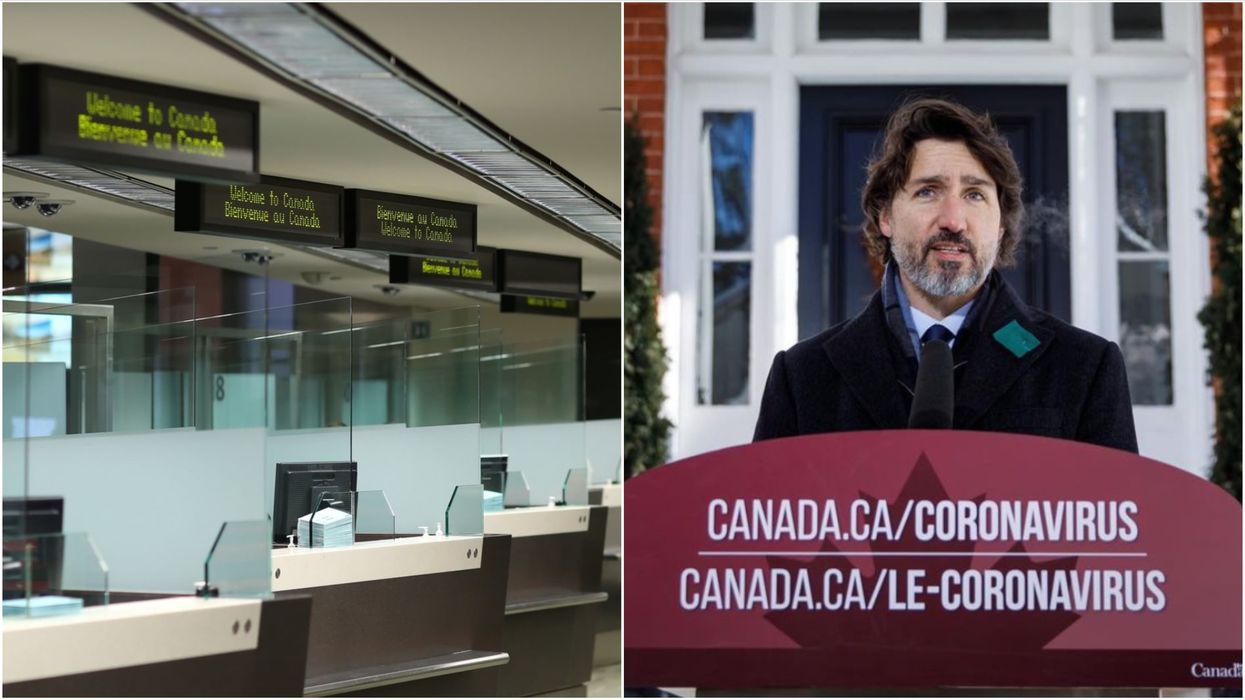Canada's Travel Rules Had A Major Update & Here's Everything You Need To Know
Over the last few days, Canada’s travel rules have had several significant updates.
All travellers entering the country will now be required to follow several new rules, in addition to providing a negative COVID-19 test prior to boarding a flight.
Editor's Choice: CERB Money Was Received By More Than 300K Teenagers In Canada
While the federal government insists that less than 2% of all Canada’s COVID-19 cases are a result of travel exposures, new variants of the illness are now a cause for concern for officials.
For this reason, Justin Trudeau revealed that restrictions for incoming travellers would be ramping up ASAP.
With that in mind, here’s what you need to know:
What has changed?
In a press conference on January 29, the prime minister confirmed several new updates to Canada’s ongoing travel restrictions.
Firstly, the government has suspended all flights to and from Mexico and Caribbean countries until at least April 30, 2021.
This new rule will come into effect as of Sunday, January 31, 2021.
In addition, all incoming international flights will now be required to land in one of just four approved Canadian airports.
This includes Montréal-Trudeau International Airport, Toronto Pearson International Airport, Calgary International Airport, and Vancouver International Airport.
Prior to the new announcement, scheduled commercial flights from the U.S., Mexico, Central America, the Caribbean and South America were exempt from this restriction.
What is the hotel quarantine rule?
In addition to all air passengers providing a negative COVID-19 test prior to flying, the country’s quarantine rules will also be ramping up.
Upon their arrival in Canada, travellers must take another COVID-19 test at their destination airport.
While they await test results, passengers will now be required to quarantine in a government-approved facility for at least three days.
There are expected to be “very limited exceptions” to this rule.
Those who fail to follow the new travel protocol could face fines of up to $750,000 or even jail time under the Quarantine Act.
Officials have yet to confirm an exact date for this to come into effect, but Trudeau promised that more details would be coming in the next few days.
Who will foot the bill?
In a statement explaining the new rules, Canada’s Minister of Public Safety and Emergency Preparedness Bill Blair confirmed that travellers will be required to pay for the quarantine services they must now use.
“We don't believe that Canadian taxpayers should be on the hook for paying any part of the cost for the choice and decision that some individual has made to engage in non-essential discretionary travel,” he explained.
In addition to the cost of the hotel room required, health and safety measures that protect staff, testing facilities and equipment and transportation funds must also be covered.
Those choosing to travel can expect to pay over $2,000 in fees to enter or return to Canada.
What about the land border?
While the Canada-U.S. land border remains closed to all non-essential travel right now, the Canadian government has decided to tighten restrictions there, too.
Those travelling by land were previously exempt from the negative COVID-19 test requirement that air passengers were subject to, but that is about to change.
Speaking on January 29, Trudeau confirmed that officials were working on "additional testing requirements for land travel."
While a start date has not yet been determined, anybody crossing a land border into Canada will soon be required to show proof of a negative COVID-19 test to gain entry.
- Flights To Hawaii: Air Canada Just Announced A Bunch Of New Direct Flights From Canada To Hawaii - Narcity ›
- Canada’s Travel Rules Are Avoided By Some Private Planes From Abroad - Narcity ›
- Canada's International Travel Restrictions Will Stay Until June 2021 - Narcity ›
- India Flight Ban In Canada Extended For Another Month - Narcity ›
- Travel Restrictions In Canada Have No Set End Date Says Feds - Narcity ›
- PEI Reopening Plan Includes No Isolation For Some Vaccinated Travellers - Narcity ›
- Canada's Travel Restrictions Should Be Updated Says Travel Companies - Narcity ›
- Canada Travel Restrictions Could Loosen For International Travellers By The Fall - Narcity ›
- What You Now Need To Remember When Travelling Through A Canadian Airport - Narcity ›
- Canadians Who Refuse To Wear A Mask On Planes & In Airports Can Get Fined Up To $5K - Narcity ›
